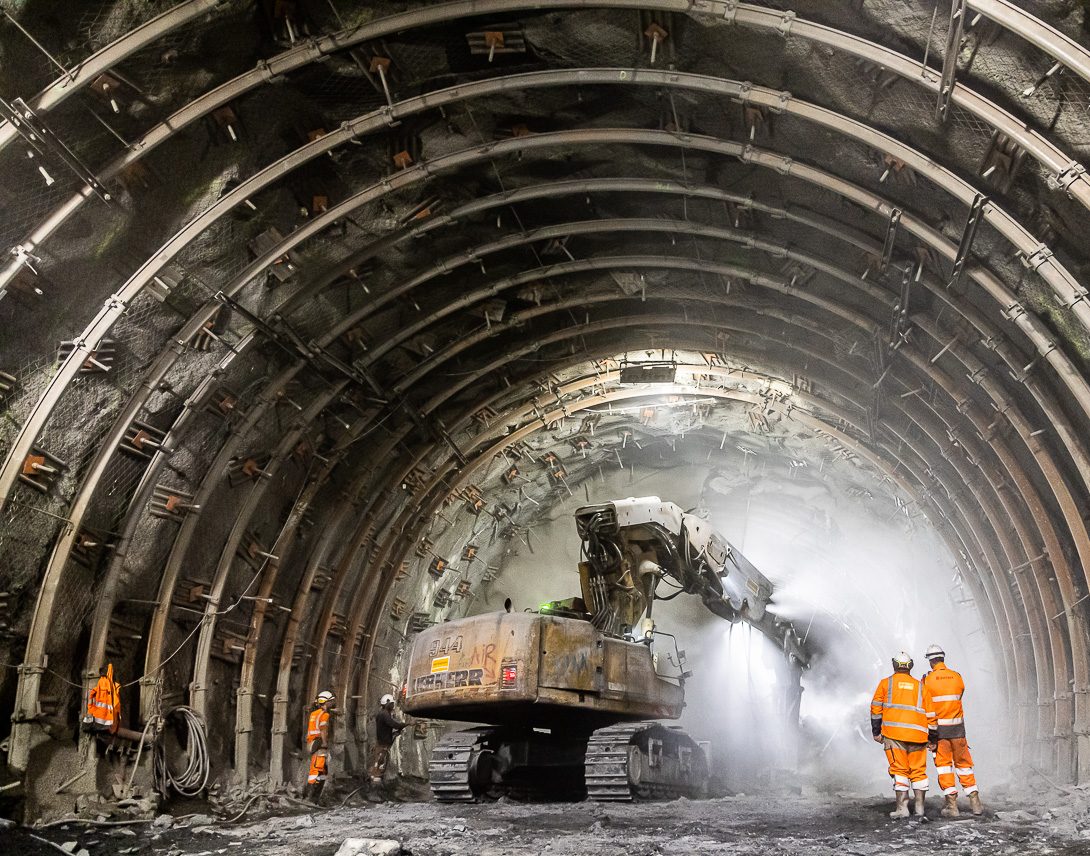The works for the Saint-Martin-la-Porte exploratory tunnel of the new Lyon-Turin railway line received a bronze medal at the ITA Tunnelling Awards, the annual awards for excellence in tunnelling presented by the International Tunnelling and Underground Space Association (ITA), which was held yesterday in Genoa in the presence of industry leaders.
The human and technological commitment of TELT and the companies involved in the construction of the Lyon-Turin tunnel was awarded with the third place for the “Project of the Year – €50-500 million” for the SMP4 – Lyon-Turin Saint-Martin-la-Porte exploratory tunnel. This is the construction site for an exploratory tunnel about 10 km long, including 1.4 km in the most critical geological part of the Mont Cenis crossing, which has become the first section of the base tunnel for the new Lyon-Turin freight and passenger railway line.
This real “test construction site” was essential for the successful completion of the geological and geomechanical analyses required to start digging the main tunnels of the Lyon-Turin cross-border section. It has enabled us to identify the challenges of anticipating, verifying, adapting and developing reliable digging and support methods.
The SMP4 tunnel anticipated the final route of the Mont Cenis base tunnel. It marked the start of the final phase of construction of this 57.5 km-long Alpine infrastructure, which will help reduce greenhouse gas emissions and road congestion through a modal shift from road to rail.
“This award recognises not only the technical excellence of the SMP4 group of companies, but also TELT’s commitment to the success of this unique bi-national project. The Lyon-Turin project is much more than just a construction site; it is an essential contribution to the ecological transition and the sustainable future of the Alps, and we are proud to play a key role in this major development for mobility in Europe”, said Maurizio Bufalini, CEO of TELT.
Launched on 19 August 2014 and completed on 30 September 2022, the SMP4 project is responsible for digging the first 10 km along the axis and diameter of the south tube of the base tunnel, including 1.4 km in a heterogeneous geology with high convergences. Under TELT’s management, this ambitious project involved a group of companies made up of Spie batignolles génie civil (group head), Eiffage Génie Civil, Ghella, CMC di Ravenna and Cogeis, under the supervision of Egis and Alpina, the engineering firms that designed the project.
Faced with particularly complex geological conditions, TELT and its partners had to overcome a number of technical challenges. Particularly, the presence of unstable shale formations and unpredictable carboniferous materials along the route made it necessary to develop innovative solutions. For example, a two-stage method of stabilising the TBM was developed to reinforce the excavated materials along the tunnel. A combination of expanding foam and resin injections hardened the unstable zones, thereby ensuring the safety and continuity of digging operations.
To guarantee the structural integrity of the structure, TELT also introduced a two-component grout, a pioneering process in France, particularly for a hard rock TBM, which made it possible to inject a mixture into the annular space between the tunnel and its lining, aligning and fixing the segments to better distribute the pressure of the ground and minimise the risks of deformation.
In sections excavated using the traditional method where rock loads were particularly high, a controlled deformation support system was adopted to stabilise the walls. This approach made it possible to effectively manage the deformations caused by the extreme geological stresses, while maintaining the pace of the works.
The success of this project has also been based on rigorous management that respects the environment, and on keeping local residents constantly informed about the works planned in their area. Continuous geotechnical monitoring, supported by borehole sample analysis and data collected in real time, enabled rapid adjustments to be made to excavation strategies. In addition, TELT has taken proactive measures to protect the local ecosystem. The water used in the digging operations has been treated and recycled before being discharged into the Arc, thus limiting the environmental impact of the construction site.




